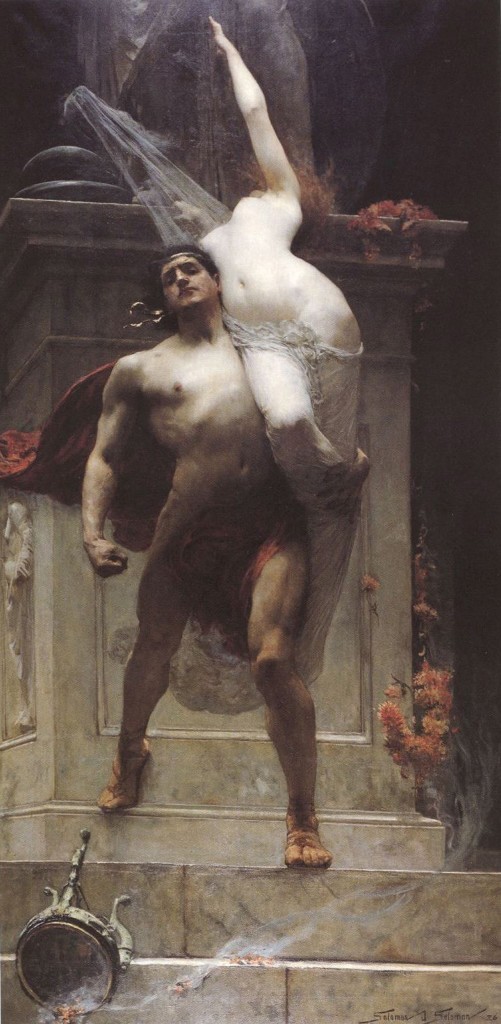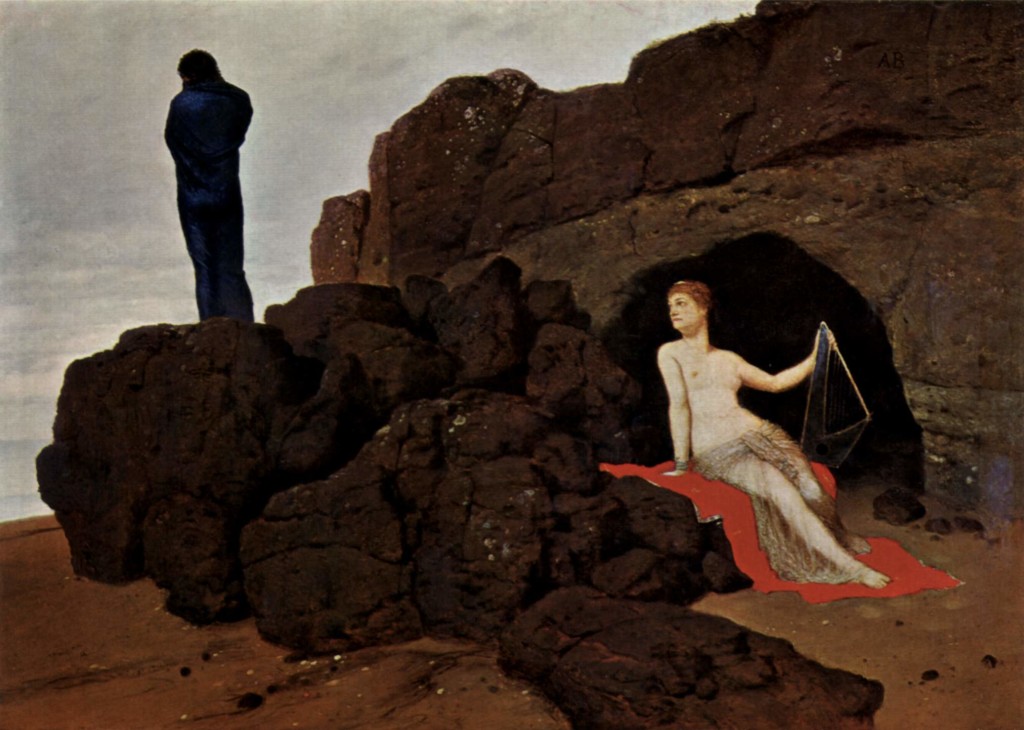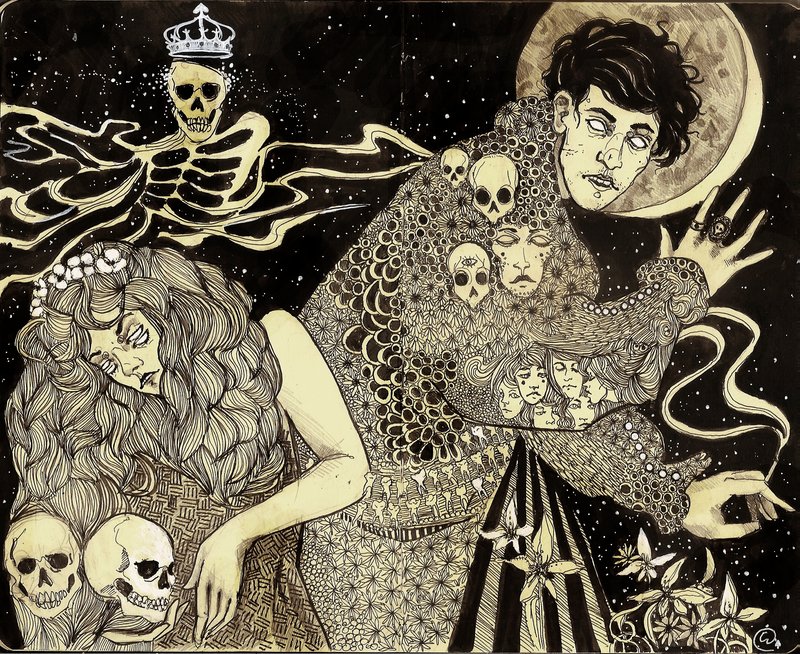Andrew Anglin
Daily Stormer
March 1, 2015

Recently, I wrote a brief piece about a Black man’s comments on the way Radiohead’s song “Creep,” an anthem of self-loathing, speakings to the White soul. I noted that we do possess a deep longing to suffer, spiritually embodied in the Stations of the Cross, and that this is what has driven us to greatness, throughout history.
I got several responses to the article claiming that it is Jews who have encouraged an indulgence in personal suffering in modern music. I would like to argue that though bands such as Radiohead and Nirvana may or may not be helpful, there is nothing Jewish about them, and in fact Jews are incapable of feeling the level of emotion represented in depressing White music (which is why there is such a huge element of faking/trying too hard in Bob Dylan’s songs).
I have noted that in the music of Radiohead, we do see melancholia become self-loathing in a way that can be self-destructive. Kurt Cobain obviously just couldn’t take it anymore, though that no doubt had something to do with his horrible Jew wife. And though it is the Jewish social order which has transformed melancholia into a bottomless pit of self-loathing (there is always an element of self-loathing within melancholia), I see nothing Jewish about the emotion in the music itself.
Beyond this, it appears rather clear that instead of promoting music which is introspective, the Jews who manage the music industry have instead added elements of Negro music to most pop music for the express purpose of removing the melancholia. The baby boomers, the first generation raised on “happy” music, are the generation who sold out our entire civilization in pursuit of a depression-free existence – the fantasy that they could live inside of a Beatles song.
What this 60s feel-good music did was sell an easy happiness, when in reality, just as Christ died to be born again, we as White men must suffer and break ourselves down in order achieve contentment through overcoming the pain of existence.
Throughout White literature, going all the way back to Homer, the concept of suffering in order to achieve greatness through struggle is ubiquitous.
When Odysseus is shacked up with Calypso, he has infinite levels of sexual pleasure, luxury and eternal youth. This is described as bringing him into a state of intense suffering.
By nights he would lie beside her, of necessity, in the hollow caerns, against his will, by one who was willing, but all the days he would sit upon the rocks, at the seaside, breaking his heart in tears and lamentation and sorrow as weeping tears he looked out over the barren water. (5.154-158)
His imprisonment by the nymph represented, metaphorically, the emptiness European man feels when all of his needs are fully filled and he has nothing more to strive for.

All great European literary heroes embodied the same infinite longing as Odysseus. You don’t see anyone dancing to “Blue Suede Shoes” in Norse mythology. Shakespeare’s Hamlet was called “the Melancholy Dane,” and none other of the Bard’s characters were dancing a boogie either. Modern literary figures such as Natty Bumppo and Sherlock Holmes have this same temperament.

Given that this longing is our natural state, the idea of seeking “happiness” is foreign to our psychology. We define ourselves by the struggle, and the suffering that the struggle entails.
The entire history of European music had embodied melancholia, most of it having been religious.
In the Medieval period, it was Gregorian chant.
In the period during and after the Black Death, the most popular form of music in Europe was called Geisslerlieder, sung by travelling flagellants – that is, men who beat themselves with whips – pretty emo, huh?
Musically, flagellant songs were similar to lauda spirituale, which was popular in Southern Europe from the end of the Medieval period up through the Renaissance.
During the Renaissance is when the first great composers emerged. Guillaume Dufay is one such example.
Then came the Baroque period, defined by Bach.
Then was the Classical period, with Mozart.
The history of Europe has been defined by heavy, emotional music.
Finally, we reached the Romantic era, epitomized by Wagner, which was heavier than anything which came before it.
This is the opening to Wagner’s The Nibelung’s ring:
Winter has waned upon his stormy wing —
the woods are wild with flowers — before my eyes
Spring on the world lies like a lover lies —
the birds have bursts of song for everything —
it seems as if the ceaseless blossoming,
the splendour and the spell can never tire —
for if night comes the moon is like a fire —
and yet my sadness will not let me sing.
Mine is the single sorrow — how shall I
bring to my heart the heart I long to bring ? —
My heart so bleeds at my own bitter cry
I taste its blood — as Siegfried, for the ring,
did Fafner’s, and a bird, as it goes by,
laughs ” Love’s enough — ’twas Love that lured the
Spring ! “
This is the music that shaped the temperament of Adolf Hitler. Hitler was about as emotionally heavy a person as you could ever imagine.
It seems silly even to point it out. Of course he was a deeply emotional man, or never would he have been driven towards greatness. He would have instead have been hanging out between bars and brothel houses, as many in Berlin at the time were content to do. It required the depths of personal suffering to cause him to rise and become what we became.
And we must wonder what role Wagner played in all of that. Hitler certainly considered the man a central part of his life, as he had been a central part of the life of Nietzsche (before Wagner converted to Christianity, at least).
So, no, I don’t think that emotional music is in any way damaging to the European soul, in fact it is an embodiment of it, and through it we are able to channel our souls and those of our ancestors.
What can be said is that while Hitler enjoyed this music which embodied such deep suffering, as Europeans all throughout history have enjoy such sounds, before the modern electronic era it would have only been a few times a year, at most once a month, that the average person would be exposed to such music.
If he had had Nirvana Unplugged playing out of his laptop speakers on repeat, it is possible he would have just gone ahead and committed suicide as an unrecognized painter instead of going into politics and nearly taking over the world.
So, the technological age creates a different situation, and this is why I myself try to limit my indulgence in highly emotional music. Too much of it can definitely wear on you.
Maybe I’m wrong, but I’d imagine many other young men, struggling with the modern world, have the same struggle I do with melancholia and music. Music is extremely powerful, almost a form of magic, and we should recognize the way it effects us emotionally and psychologically.
It seems as I’ve aged, I’m incapable of really getting into anything particularly loud and energetic. So, I switch between heavy emotional music and various instrumental stuff, from all different eras. Not all music throughout history was depressing – didn’t mean for that impression to be given here. There are all types of sounds, it is merely that the main strain of music was generally heavy, and very often leaned toward the depressing.
Just to show how much I have completely failed to be a skinhead, here are some songs I like.
 Daily Stormer The Most Censored Publication in History
Daily Stormer The Most Censored Publication in History




